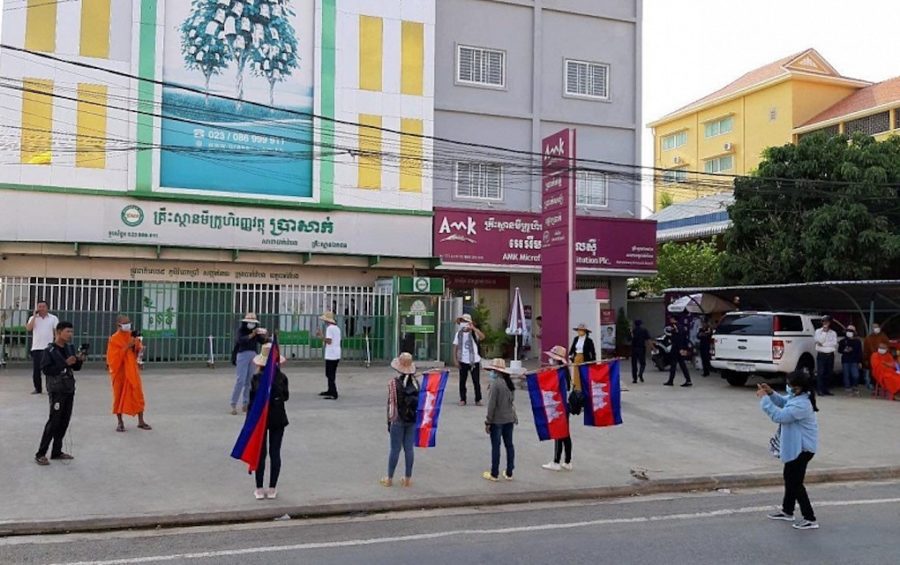A large public survey of rural Cambodian households commissioned by the German government to investigate microloans found over-indebtedness, pressure to sell land and aggressive door-to-door marketing, and calls for phasing out public funds from the sector.
The report, “‘Micro’ Finance in Cambodia,” highlights the ballooning of Cambodia’s MFIs over the past decade that saw a steep rise in loan sizes among households and competitiveness among lenders.
It says the lending is no longer “micro” or targeted at poverty relief, and German taxpayer funds would be better spent on other aid initiatives.
It also calls for canceling loans to the country’s poorest households who receive ID Poor subsidies, as the government has deemed they do not have enough income for subsistence so lenders should not have assessed that they could repay a loan.
The survey was initiated by the German parliament based on rising criticism about the Cambodian MFI industry, including from local rights group Licadho and German NGO Fian.
A survey of 1,388 households in six provinces earlier this year found 16.1% of indebted households saying they did not benefit from borrowing, 27.9% had problems with repayment, and 6.3% were forced to sell land in order to be able to pay installments.
“If this figure is extrapolated to all borrowers in Cambodia, then possibly 167,400 individuals or households were forced to sell land due to over-indebtedness in the last five years,” the report says, adding that the average loan size was $5,183.
The report qualifies that the human rights violations found were “partial” and most households benefited from their loans. But microfinance in Cambodia is no longer about poverty relief, it says.
“This vision seems increasingly to have been lost from view. In contrast, the goal of expansion, of increasing turnover as well as profits, clearly comes to the fore,” it says. “The over-indebtedness of very many households in Cambodia is a fact not disputed even by the financial institutions involved.”
The report calls for an end to aggressive marketing practices, including “an immediate stop to door-to-door solicitation.”
It recommends that the German state push for the cancellation of loans for ID Poor recipients, and end support for microfinance in the medium-term.
“Further support of the MF sector from tax revenues by German state DC no longer makes sense in terms of a poverty-reducing effect,” it says, using an abbreviation for development cooperation.
An email and message sent to a German Embassy representative on Wednesday has not been answered as of publication. The Cambodia Microfinance Association and Advans, a German-supported fund that finances Cambodian MFI Amret, have also yet to reply.
Licadho said in a press release on Wednesday that German stakeholders should not evade their responsibilities in providing debt relief to distressed Cambodian borrowers.
“The German development banks and other donors should use the profits that were squeezed out of over-indebted Cambodian borrowers over many years for debt relief and provide effective remedy for victims of human rights violations now,” said outreach director Naly Pilorge.
“Since at least 2017, the German government and other donors have been well aware of the severe over-indebtedness levels in Cambodia, yet they have done next to nothing to address this problem and continue to pump millions of Euros into the sector to this day,” added Mathias Pfeifer, program officer at Fian.













